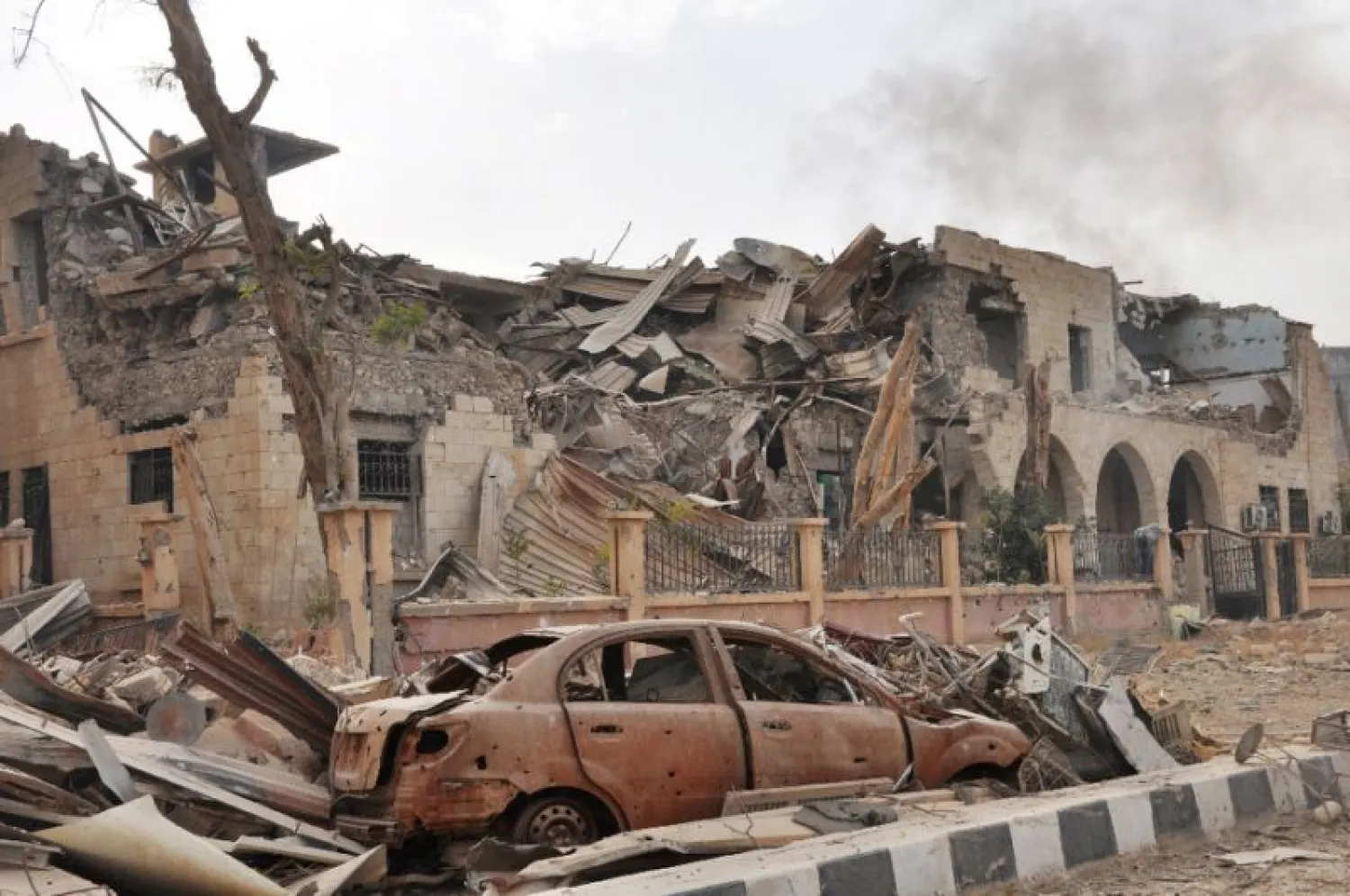Iraqi Army warplanes joined on Sunday the battles fought by The Popular Mobilization Forces (PMF) in the nearby Syrian Bukamal after launching airstrikes on the city’s countryside.
Syrian forces and their militias, supported by Iran and “Hezbollah” - are seeking to control Bukamal by trying to advance towards the city from the southern side, under a Russian air coverage.
According to the Syrian Observatory for Human Rights (SOHR), those forces were now less than 15 km away from the Bukamal, where violent clashes erupted between regime forces and ISIS militants in the largest bastion of the terrorist group in Syria.
The SOHR said it learned from several reliable sources that PMF militants have entered the Syrian territory and began to operate under the umbrella of Al-Nujaba’ Iraqi Movement, which has been fighting along the regime forces in many fronts in the Syrian desert and other areas.
Meanwhile, at least 75 displaced people were killed and 140 were wounded by an ISIS car bombing in eastern Syria.
The attack targeted fleeing civilians in the eastern province of Deir Ezzor, killing displaced civilians including children.
Aid group 'Save the Children' estimates that some 350,000 people have fled the recent fighting in the oil-rich province and half of them were children.
There are currently two military operations fought in the Deir Ezzor province against ISIS. The first is led by the Russian-backed Syrian regime forces along the western strips of the Euphrates River; where the two cities of Bukamal and Deir Ezzor are located. The second battle is waged by the Washington-backed Syrian Democratic Forces in the eastern strips of the River that divides the province.
Meanwhile, the Russian military in the Hmeimim airbase announced on Sunday it has opened a new center in the Deir Ezzor province, near the Iraqi border.









